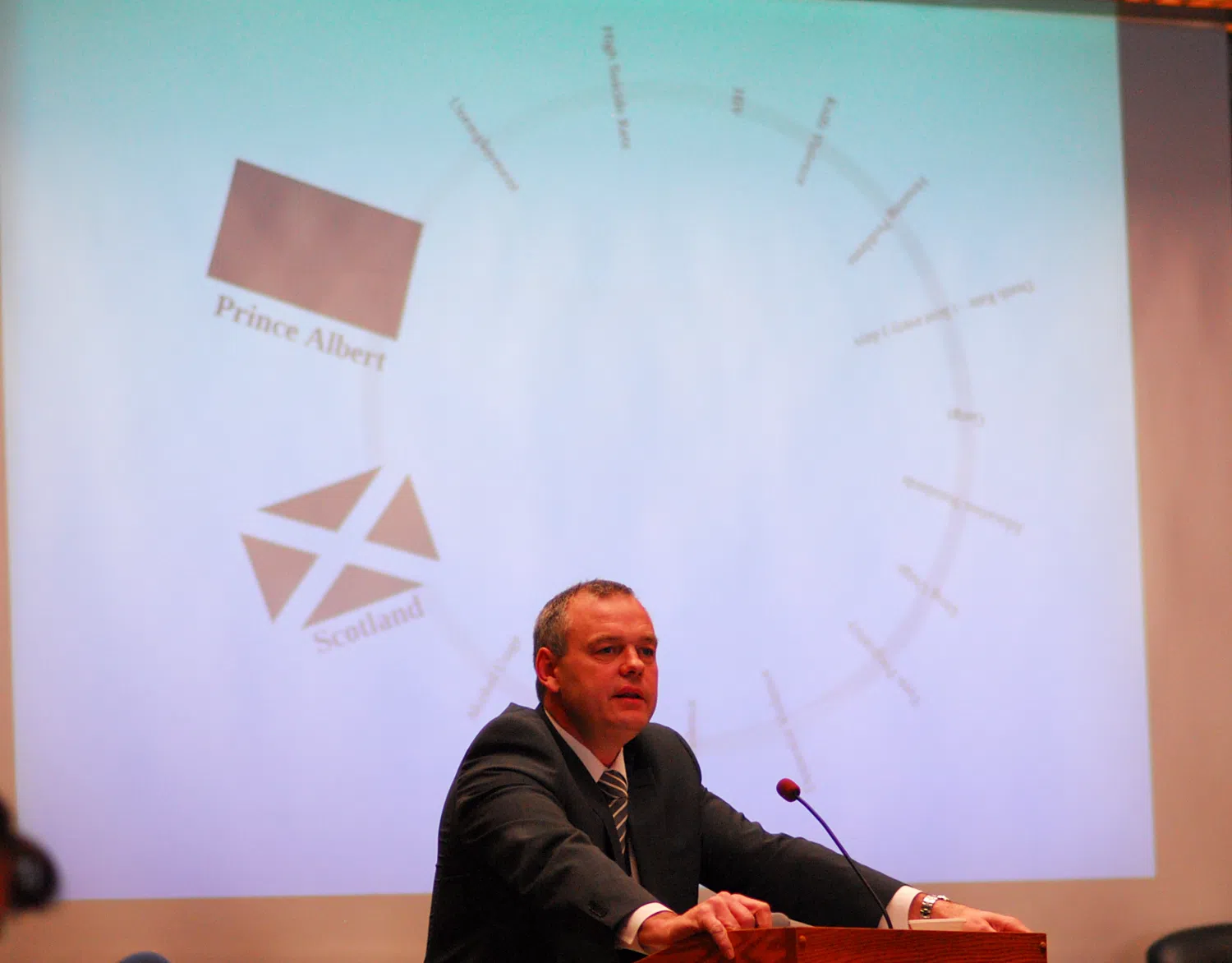
Work continues to fight crime’s root causes
Work continues through Prince Albert’s new initiative to deal with the root causes of crime and other activities police call “anti-social.”
During Monday’s city executive committee meeting, Prince Albert Police Service chief, Dale McFee, gave a presentation about a trip he and several other community leaders and social service workers took to Glasgow, Scotland to learn how that city had dealt with crime.
paNOW has covered the contents of his presentation and a program implemented since the group returned, known as “the Hub.”
McFee’s presentation was the first time it was generally opened to the public and he offered an update on the progress of the Hub.


